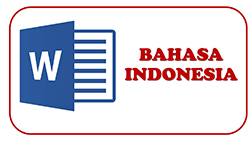Analisis Perkembangan Klasifikasi Ilmu Dalam Pandangan Islam
Abstract
The development of scientific classification occurred gradually along with the development of science both in the West and in the Islamic world. This article aims to explore ideas about the classification of science based on Western and Islamic perspectives. This research is qualitative research with a library research method based on author searches sourced from several relevant books and journals. The research results confirm that the development of science creates dichotomization and antagonism of various branches of science in the Western view. However, from an Islamic perspective, forms of knowledge and various branches of knowledge are one unit, even though the development of science in Islam was influenced by scientists from Greece. Some of the figures quoted in this article include Comte, Popper, Kuhn, and Habermas. Meanwhile, Muslim scientists come from the opinions of al-Farabi, Ibn Sina, Ibn Khaldun, and several other Muslim scientists. While in classical times there were only large classifications, currently there are special notations with special numbering to classify science in detail. The classification of Islamic sciences carried out by Muslim scientists emphasizes that the scope of knowledge in Islam is very broad, covering worldly and everyday affairs. The limitation of science is that the development of science must be within the framework of monotheism within the framework of devotion to Allah, and for the benefit of humanity. The classification of science in the Western view tends to be more secular and materialistic, while the Islamic view offers a more holistic view that integrates the physical and spiritual aspects. Both approaches provide valuable insights and can complement each other in the effort to achieve a fuller and deeper understanding of the world and our place in it.
Downloads
References
Abd al-Jabbar. (2018). Al-Mughni fi Abwab at-Tawhid wa al-‘Adl, Vol. XII, ed. Ibrahim Madkour, Cairo: Al-Muassasah al-Mishriyyah al-‘Ammah li at-Ta’lif wa at-Tarjamah wa at-Tiba’ah wa an-Nasyr.
Adian Husaini, (2013). Filsafat Ilmu, Perspektif Barat dan Islam, Jakarta: Gema Insani.
Afrizal. A. (2016). Metode Penelitian Kualitatif: Sebuah Upaya Mendukung Penggunaan Penelitian Kualitatif dalam Berbagai Disiplin Ilmu (3rd ed.). Jakarta: Raja Grafindo Persada.
Ainor Syahirah Binti Khalid, Indri Rahmadina dan Dalinur M. Nur. (2013). Konsep dan Klasifikasi Ilmu Pengetahuan dalam Islam. Wardah: Jurnal Dakwah dan Kemasyarakatan. doi:10.19109/wardah.v21i2.7270
Anwar, Yesmil & Adang. Pengantar Sosiologi Hukum. (2008). Ontologi dan Klasifikasi Ilmu August Comte, Jurnal Ilmiah Falsafah: Jurnal Kajian Filsafat, Teologi dan Humaniora, 9(1).
Azyumardi Azra and Idris Thaha. (2012). Pendidikan Islam: Tradisi dan Modernisasi di Tengah Tantangan Millenium III, cet. 1, Jakarta: Kencana kerjasa dengan UIN Jakarta Press.
Charles Micahel Stanton. (1990). Higher Learning in Islam: The Classical Period, A.D. 700-1300 Savage, Md: Rowman & Littlefield.
Darwis A. Soelaiman. (2019). Filsafat Ilmu Pengetahuan Perspektif Barat dan Islam, Aceh: Bandar Publishing.
Diana Sari dan Kholilur Rohman. (2020). Kedudukan Epistemologi dalam Filsafat Barat, JAQFI Jurnal Aqidah dan Filsafat Islam, 5(1).
Harun Nasution. (2011). Islam ditinjau dari berbagai aspeknya, Jilid II. https://onesearch.id/Record/IOS3955.ai:slims-490/TOC
Ibn Sina. (2019). Islamic Philosophy Online, http://www.muslimphilosophy.org/category/dudes/sina
Imam Suprayogo. (2003). Problema Relasi Agama dan Sains di Perguruan Tinggi Islam. Reflektika: Jurnal Keislaman IDIA Prenduan 2.
Inayatul Ulya dan Nuhan Abid. (2015). Pemikiran Thomas Kuhn dan Relevansinya terhadap Keilmuan Islam. Fikrah: Jurnal Ilmu Aqidah dan Studi Keagamaan, 3(2).
Ismail Farie Alatas. (2006). Sungai Tak Bermuara, Risalah Konsep Ilmu dalam Islam, Jakarta: Diwan Pub.
James A. Marcum. (2016). Thomas Kuhn’s Revolution: An Historical Philosophy of Science, New York: Continum.
Maydi Aula Riski. (2021). Teori Falsifikasi Karl Rimund Popper: Urgensi Pemikirannya dalam Dunia Akademik. Jurnal Filsafat Indonesia, 4(3).
Muannif Ridwan, et al. (2021). Pentingnya Penerapan Literature Revies pada Penelitian Ilmiah, Jurnal Masohi, 2(1), hal. 42-51, doi: https://doi.org/10.36339/jmas.v2i1.427
Muhammad ‘Abid Al-Jabiri. (1993). Buyat al-‘Aql al-‘Arabi: Dirasah Tahliliyyah Naqdiyyah li Nuzhum al-Ma’rifah fi ats-Tsaqafat al-‘Arabiyyah, Cet. III, Beirut: Al-Markaz ats-Tsaqafi al-‘Arabi.
Muhammad Kosim. (2008). Ilmu Pengetahuan dalam Islam (Perspektif Filosofis-Historis), Jurnal Tadrs, 3(8).
Muhammad Solikhudin. (2021). Abu Hamid al-Ghazali’s Thoughts on The Dicotomy of Ulama and The Classification of Knowledge (Study of Ihya ‘Ulum al-Din Book). Empirisma: Jurnal Pemikiran dan Kebudayaan Islam, 30(1).
Muhammad Zainal Abidin. (2021). Dinamika Pemikiran Klasifikasi Ilmu dalam Khazanah Intelektual Islam Klasik, Ilmu Ushuluddin. 20(1).
Muhsin Mahdi. (1940). Science, Philosophy, and Religion in Alfarabi’s Enumeration of the Sciences, The Cultural Context of Medieval Learning, Chapter Series, BSPS, Volume 26.
Mulyadi Kartanegara. (2007). Nalar Religius: Memahami Hakikat Tuhan, Alam dan Manusia, (ed. Halid Alkaf dan Achmad Ta’yudin), Jakarta: Penerbit Erlangga.
Mutty Hariyati dan Isna Fistiyanti. (2017). Sejarah Klasifikasi Ilmu-Ilmu Keislaman dan Perkembangannya dalam Ilmu Perpustakaan, Pustakaloka, 9(1).
Nunu Burhanuddin. (2018). Filsafat Ilmu. Jakarta: Prenada Media Group.
Nurul Laylia, Muhammad Nur Hadi dan Syaifullah. (2020). Klasifikasi Ilmu dalam Perspektif Imam al Gohzali. Mu’allim Jurnal Pendidikan Islam, 2(2). doi: 10.1037/0022-3514.5.4.432
Osman Bakar and Sayyed Hossein Nasr. (1997). Hierarki Ilmu: Memabangun rangka-pikir Islamisasi Ilmu menurut al-Farabi, al-Ghazali, Quthb al-Din al-Syirazi.
Paul Edwards. (1972). The Encyclopedia of Philosophy, New York: Mac Millan Publishing..
Rifky, S., Putra, J. M., Ahmad, A. T., Widayanthi, D. G. C., Abdullah, G., Sunardi, S., & Syathroh, I. L. (2024). Pendidikan Yang Menginspirasi: Mengasah Potensi Individu. Yayasan Literasi Sains Indonesia.
Sayyed Hossein Nasr. (1972). Science and Civilization in Islam. New York: New American Library.
Surajiyo. (2014). Sejarah, Klasifikasi dan Strategi Perkembangan Ilmu Pengetahuan, Universitas Indraprasta PGRI Jakarta.
Taufiq El-delpieronisme. (2010). Science and Civilization in Islam. Hal: 60-62. http://www.academia.edu/906807/Science_and_Civilization_in_Islam.
Umdatul Baroroh. (2023). Filsafat Ilmu dalam Madzhab Kritis Jurgen Habermas, JAQFI: Jurnal Aqidah dan Filsafat Islam, 8(1).
Webster’s New World Dictionary. 1962. of the American Language, Ceveland and New York: The World Publishing Company.
Wilfaqur Rohman. (2019). Klasifikasi Ilmu Pendidikan Perspektif Imam Ghozali, Salatiga: IAIN Salatiga.





.png)










